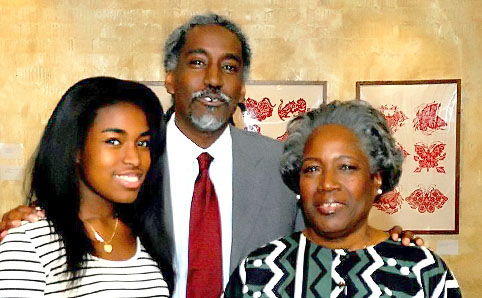Latest News Archive
Please select Category, Year, and then Month to display items
02 January 2025
|
Story Gerda-Marie van Rooyen
|
Photo Supplied
 Leading the research in South Africa is Prof Linus Franke from the Department of Soil, Crop and Climate Sciences.
Leading the research in South Africa is Prof Linus Franke from the Department of Soil, Crop and Climate Sciences.
Scientists are actively pursuing the successful breeding of diploid hybrid potatoes from inbred lines. This is expected to revolutionise potato breeding as it holds the key to rapid genetic progress. It will introduce new varieties for commercialisation through seed. Currently, existing potato variants have a gene that renders self-pollinated seeds infertile.
Prof Linus Franke, an academic in the Department of Soil, Crop and Climate Sciences at the UFS, is leading the research in South Africa. “This technology allows the production of genetically uniform potato seed that is easy to transport and largely disease-free.” He says this differs from conventional breeding whereby only vegetative propagation is possible due to tetraploid varieties in potatoes. It also risks carrying pests and diseases from one generation to the next – leading to the accumulation of pests and diseases with each round of multiplication.
Seed innovation
Prof Franke explains that Solynta BV, a seed company based in the Netherlands that produces potato varieties that can be grown from seed, has included South Africa in their research efforts because it is one of Africa’s largest producers and exporters. Through his academic relationship with Wageningen University and Research, a Dutch institution renowned for its agricultural endeavours and food production, the UFS became involved in researching hybrid potatoes grown from seed.
Diploid seeds containing two sets of chromosomes allow easier gene manipulation to increase predictability and speedier genetic progress. The breeding approach enables the incorporation of tolerance to pests, diseases, abiotic stresses (cold, heat, drought) and other desired genetic traits.
Although Prof Franke is optimistic about this research, he is not blind to disadvantages. “Potato seeds are tiny and have little energy reserves, making it harder to grow potatoes from seed than from tubers.” He says potatoes from seed will take longer to cultivate than tubers, as farmers need to grow plantlets from seeds first, adding six weeks to the growing period. “It is possible that commercial farmers can grow potatoes directly from seed. Alternatively, perhaps more likely, specialised growers will produce tubers of potatoes from seed; these tubers are then sold as seed tubers to other potato farmers, who then continue their normal practices of producing potatoes for the market from tubers.”
Financial benefits
Prof Franke says farmers have reason to get excited. “Seed potatoes will reduce input costs, as varieties with enhanced tolerance to pests and diseases require less pesticides. Planting one hectare of potatoes requires three to four tonnes of potato tubers, but only one 25 g packet of potato seeds.” Since potatoes are a more valuable commodity than maize, this technology might also increase farmers’ income potential.
US professor makes the case for public scholarship
2011-08-17
|

|
| The Eatman family from the left: Jasmin Eatman, Prof. Timothy Eatman and Mrs. Lorraine Eatman |
The university of the 21st century should not be an ivory tower; rather it should work with communities to co-create things of public value. This was one of the observations made by visiting US Prof. Timothy Eatman. He delivered a public lecture on the topic Public Scholarship and the democratisation of knowledge in the engaged university at the University of the Free State (UFS) on Monday, 15 August 2011. Prof. Eatman challenged people at the lecture to think about richer ways of thinking about engaged public scholarship and said they need to prepare for a new citizenry of academia.
Prof. Eatman, an assistant professor of Higher Education at Syracuse University in the United States, said that knowledge was revealed in diverse ways and advised institutions of higher education to demonstrate an increasing sensitivity to issues of relevance to public good. Prof. Eatman said the present era calls for the development of a more sophisticated understanding of knowledge creation.
Prof. Eatman, who is visiting our country for the first time, brought along his mother, Lorraine, and daughter, Jasmin, who performed a contemporary dance during the event. The family had been in Bloemfontein for the past week or so and Eatman expressed his gratitude to staff and people of Bloemfontein, saying he can deliver personal testimony to the beauty of the Free State.